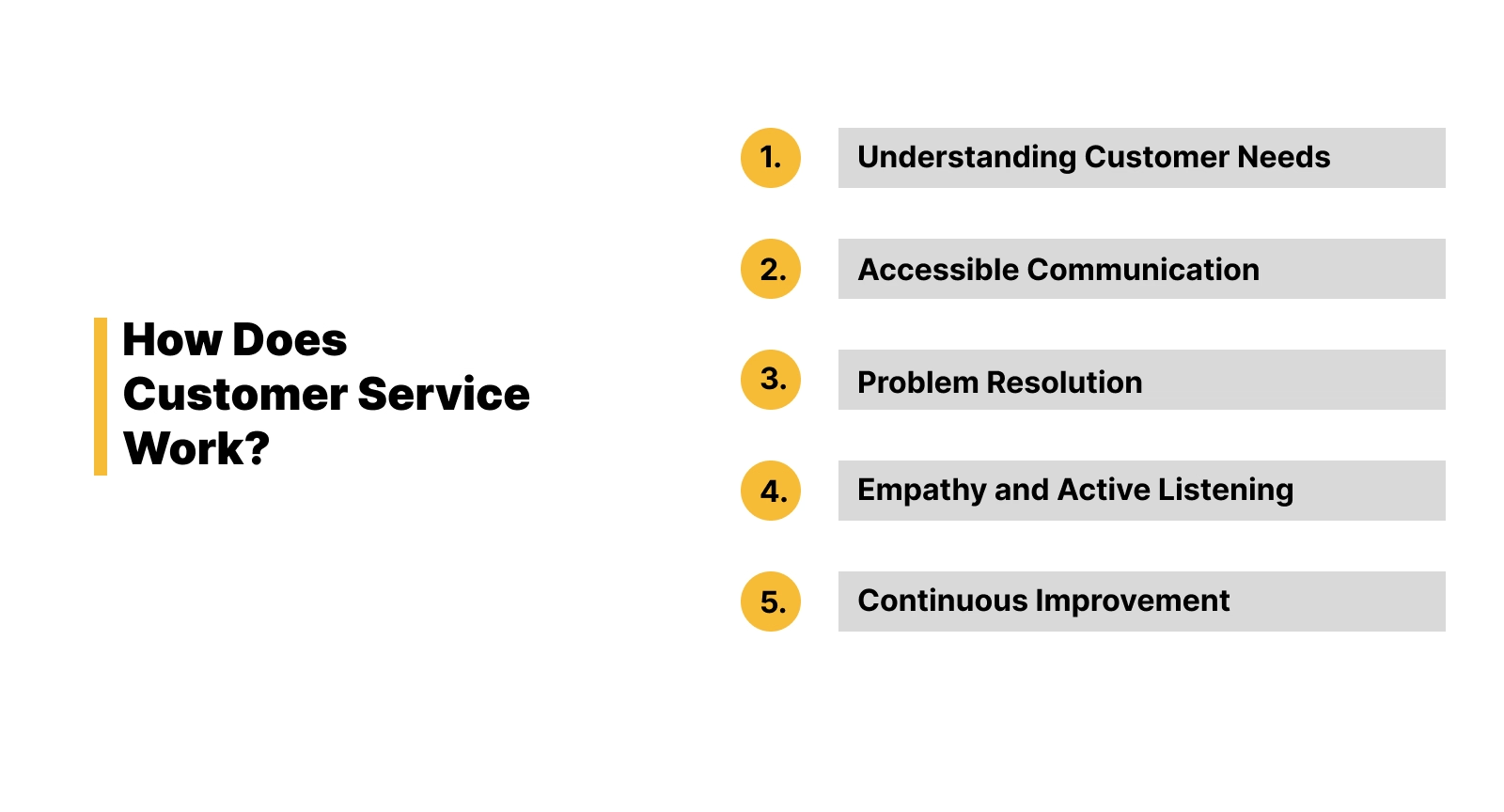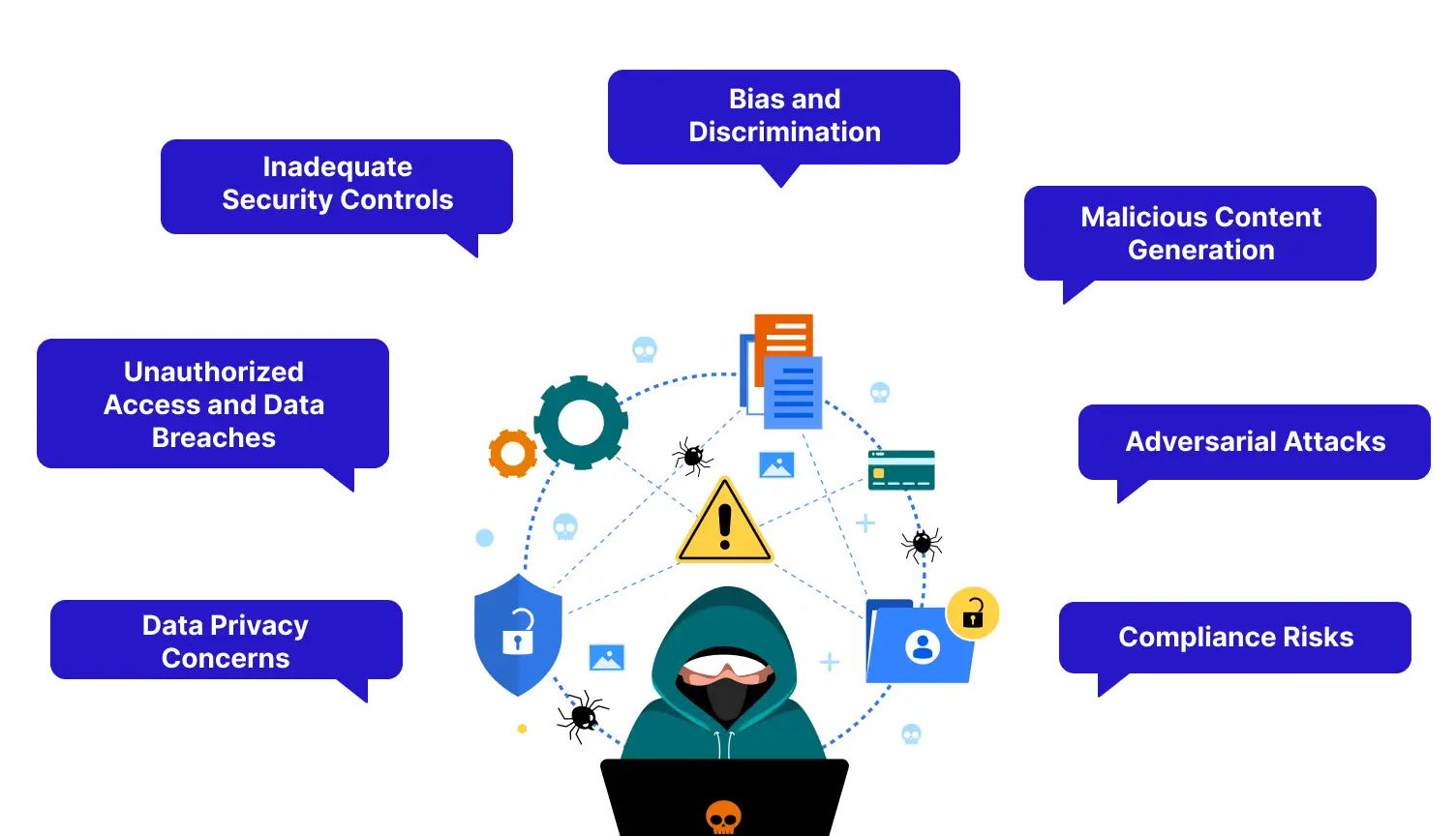Imagine a world where your customers get instant, accurate responses at any time of the day, and when they need a more personal touch, a human agent steps in seamlessly to guide them. Welcome to the future of AI customer service, where technology isn’t just about automation—it’s about creating exceptional experiences that blend the precision of AI with the warmth of human interaction.
The big question: How can AI customer service elevate customer service without losing the human element? The answer lies in collaboration. While AI customer service automates repetitive and routine tasks, human agents can focus on the emotional and complex aspects of customer service. Together, they’re not just solving problems but redefining customer experiences. Ready to see how?
Transform AI Customer Service: Empower Your Team
AI Meets Human Expertise: The Ultimate Customer Service Duo
The power of AI customer support tools is undeniable. They’re transforming how businesses respond to customers by automating the simple, speeding up the process, and offering personalized solutions. But here's the twist: AI alone isn't enough. That's where human agents come in.
AI is incredibly efficient, but human agents bring empathy, creativity, and critical thinking that AI can’t match. When AI handles repetitive tasks, human agents can do what they do best—solve complex issues and provide the personal connection customers love.
Curious about how this combo works in real life? Let’s take a closer look!
The Magic of AI in Customer Support: Unlocking Efficiency and Personalization
AI tools like chatbots, virtual assistants, and predictive analytics are reshaping customer support, handling routine tasks, and providing businesses with instant insights. But don’t just take our word for it—here’s what AI brings to the table:
1. Boost Efficiency: Imagine a world where routine queries are handled instantly, leaving your agents free to tackle the tough questions. That’s the magic of AI automation.
2. 24/7 Support: AI doesn’t sleep. It’s ready to assist 24/7, ensuring your customers never feel left hanging, no matter their time zone.
3. Personalization: AI learns. It remembers. Analyzing customer interactions tailors each response to fit individual needs, making every customer feel seen and heard.
4. Cost Reduction: By automating repetitive tasks, AI helps cut operational costs and keeps things running smoothly without needing a huge support team.
The Role of Human Interaction in AI Customer Service
Here’s where the fun begins. AI is impressive, but it’s the human agents who make customer support feel... human. Customers don’t just want fast responses—they want to feel understood. And that’s something AI can’t do on its own.
Let’s break it down:
AI handles the basics:
- Simple queries
- Order status updates
- FAQ responses
Humans handle the heart of it:
- Complex problems that require creativity and expertise
- Emotionally charged situations that need empathy
- Conversations that require critical thinking
This dynamic collaboration between AI and humans truly takes customer service to the next level. Imagine a customer reaches out with a billing issue. The AI responds quickly with helpful info—but when the problem requires more detailed assistance, a human agent steps in seamlessly, armed with insights from AI.
This blog is just the start.
Unlock the power of Convin’s AI with a live demo.

How AI Enhances Customer Service
Artificial Intelligence (AI) revolutionizes customer support by providing innovative solutions that enhance efficiency, improve customer satisfaction, and reduce operational costs. AI customer service solutions leverage advanced technologies to handle various customer interactions, from simple inquiries to complex problem-solving, thus enabling businesses to offer superior support.
- AI Customer Service Solutions
AI customer service solutions encompass a range of technologies designed to automate and optimize customer interactions. These solutions include chatbots, virtual assistants, predictive analytics, and machine learning algorithms that deliver seamless customer support.
- Chatbots and Virtual Assistants
AI-powered chatbots and virtual assistants are at the forefront of AI in customer service. These tools can simultaneously handle many inquiries, providing instant responses and resolutions. They are available 24/7, ensuring customers receive timely support regardless of the time or day.
- Predictive Analytics
Predictive analytics uses AI to analyze customer data and predict future behaviors. This allows businesses to anticipate customer needs and proactively address potential issues. For example, predictive analytics can identify patterns in customer inquiries and suggest preemptive solutions, thereby reducing the number of support requests.
- Natural Language Processing (NLP)
NLP enables AI systems to understand and respond to customer inquiries in a human-like manner. By analyzing the context and sentiment of customer messages, NLP-powered tools can provide accurate and relevant responses, enhancing the overall customer experience.
The Synergy of AI and Human Collaboration
Let’s be real—AI is impressive, but humans are irreplaceable. When both work together, it’s a game-changer for customer service.
Imagine this scenario:
A customer calls with a complex issue that requires empathy, like a billing dispute. The AI handles the first level of questions, gathers necessary data, and quickly routes the customer to the right human agent. Armed with AI insights, the agent is ready to offer a personalized, compassionate solution. This isn’t just a conversation—it’s a fast, efficient, and genuinely caring customer experience.
Human-AI collaboration is reshaping customer service by combining the strengths of both AI technology and human expertise. This synergy enhances the efficiency and effectiveness of customer interactions, ensuring that customers receive high-quality support while leveraging the advantages of automation and advanced analytics.
Now, that’s the power of human-AI collaboration.
AI for Customer Service: Key Technologies

AI for customer service relies on several key technologies to deliver efficient and effective support.
These technologies include:
- Machine Learning
Machine learning algorithms enable AI systems to learn from past interactions and continuously improve performance. By analyzing historical data, machine learning models can identify trends and patterns, allowing AI to provide more accurate and personalized responses over time.
- Speech Recognition
Speech recognition technology allows AI systems to understand and process spoken language. This is particularly useful in call centers, where AI can transcribe and analyze customer calls in real time, providing agents with valuable insights and recommendations.
- Robotic Process Automation (RPA)
RPA automates repetitive tasks, such as data entry and processing, allowing human agents to focus on more complex issues. By automating routine tasks, RPA enhances efficiency and reduces the likelihood of errors.
Examples of AI Customer Support Tools
.avif)
Several AI customer support tools exemplify how AI enhances customer service, leveraging advanced technologies to deliver superior support and improve customer satisfaction.
- Convin
Convin is an AI-backed contact center software that uses conversation intelligence to record, transcribe, and analyze customer conversations. Convin's features include automated quality management, real-time agent assistance, and personalized coaching. By leveraging AI, Convin enhances agent performance and boosts customer experience.
- Zendesk Answer Bot
Zendesk's Answer Bot uses AI to provide instant responses to customer inquiries. By integrating with a company's knowledge base, Answer Bot can resolve common issues without human intervention, reducing response times and improving customer satisfaction.
- LivePerson
LivePerson uses AI-powered chatbots to facilitate customer interactions across various web, mobile, and social media channels. Its AI capabilities include intent recognition, sentiment analysis, and predictive engagement, which help businesses deliver personalized and efficient support.
Implementing AI for Customer Service
Implementing AI in customer support can significantly enhance efficiency, improve customer satisfaction, and reduce operational costs. However, integrating AI into existing customer service operations requires a strategic approach.
Here are the key steps and challenges in successfully implementing AI for customer support.
1. Assess Current Customer Service Operations
Before integrating AI, evaluate your current customer service processes. Identify areas where AI can add value, such as handling repetitive queries, providing 24/7 support, or analyzing customer interactions. This assessment will help you determine the specific AI tools and technologies needed for customer service operations.
2. Define Clear Objectives
Establish clear goals for implementing AI in your customer service. Objectives may include reducing response times, improving customer satisfaction scores, automating routine tasks, or enhancing agent performance. Clear goals will guide your AI implementation strategy and help measure its success.
3. Choose the Right AI Tools
Select AI tools that align with your customer service needs. Common AI solutions for customer support include chatbots, virtual assistants, predictive analytics, and natural language processing (NLP) systems. Ensure the chosen tools can seamlessly integrate with your existing customer service platforms.
4. Develop a Data Strategy
AI systems rely on data to function effectively. Develop a data strategy that collects, stores, and analyzes customer interactions. Ensure data quality and accuracy, as these are crucial for AI performance. Use historical data to train AI models and improve their accuracy over time.
5. Implement AI Solutions
Start by implementing AI solutions in specific areas of your customer service operations. For instance, deploy chatbots to handle common queries or use predictive analytics to anticipate customer needs. Based on the initial results, gradually expand the AI implementation to other areas.
6. Train and Support Human Agents
Provide training and support to your customer service agents to help them work effectively with AI tools. Ensure agents understand how to use AI-generated insights and collaborate with AI systems to deliver better customer support. Continuous training will help agents adapt to the evolving AI landscape.
7. Monitor and Optimize Performance
Regularly monitor the performance and impact of AI systems on customer service. Collect feedback from customers and agents to identify areas for improvement. Use this feedback to refine and optimize AI algorithms, thereby enhancing their performance over time.
Challenges and Solutions in AI Customer Service Implementation

Implementing AI for customer support comes with its own set of challenges. Here are some common challenges and solutions:
1. Data Quality and Privacy Concerns
Ensuring high-quality data is critical for AI performance. Poor data quality can lead to inaccurate AI responses. Additionally, data privacy is a significant concern, especially when handling sensitive customer information.
Solution: Implement robust data management practices to ensure data quality. Use secure data storage and encryption methods to protect customer information. Comply with data privacy regulations to build customer trust.
2. Integration with Existing Systems
Integrating AI tools with existing customer service platforms can be complex and time-consuming. Compatibility issues may arise, leading to service disruptions.
Solution: Choose AI solutions that offer easy integration with your current systems. Work closely with AI vendors to ensure seamless integration and minimize disruptions. Conduct thorough testing before full-scale deployment.
3. Employee Resistance to Change
Human agents may resist adopting AI tools due to fears of job displacement or unfamiliarity with new technologies
Solution: Communicate the benefits of AI to your employees, emphasizing that AI is designed to assist rather than replace them. Provide comprehensive training and support to help agents adapt to new AI tools. Highlight success stories of human-AI collaboration to build confidence.
4. Ensuring AI Accuracy and Reliability
AI systems may produce inaccurate or inconsistent responses, especially during the initial stages of implementation.
Solution: Continuously train and refine AI models using high-quality data. Implement regular monitoring and evaluation to identify and correct inaccuracies. Allow human agents to review and validate AI responses to ensure reliability.
How Convin Is Leading the Way in AI Customer Service
Ready to explore how AI and human expertise work in harmony? Enter Convin. Our AI-powered contact center software is built for seamless collaboration between agents and AI, taking your customer support to the next level.
What Convin Brings to the Table:

- Real-Time Agent Assistance: Get instant guidance and suggestions while interacting with customers, ensuring your agents always respond correctly and quickly.
- Automated Quality Management: We review all customer conversations, providing your agents with actionable insights and personalized coaching to improve performance.
- Conversation Intelligence: Understand your customers' emotions and preferences better than ever. Convin transcribes and analyzes conversations to help you make smarter decisions.
Ensuring Ethical AI Use and Data Management
- Ethical AI Practices: Ensures transparency and adherence to data privacy regulations, building customer trust.
- Robust Data Management: Maintains high data standards for reliable AI performance and valuable insights.
Convin exemplifies the future of customer service through AI and human collaboration. By enhancing agent performance, improving customer experience, boosting efficiency, and ensuring ethical AI use, Convin helps businesses provide superior support and achieve exceptional customer satisfaction.
Unlock the Future of AI Customer Service with Convin.
The Future of AI and Human Collaboration: What’s Next?
The future of customer service is bright and exciting. AI is transforming our work, but the synergy between AI-powered tools and human empathy will make the most significant impact.
Here’s what we see ahead:
- AI-Powered Self-Service: Advanced self-service platforms will allow customers to resolve issues instantly.
- Ethical AI: As AI evolves, businesses must prioritize building transparent and unbiased systems that respect data privacy.
- Continuously Improving: The best part? AI keeps getting better. It will continue to enhance the customer experience as it learns from past interactions.
Ready to Level Up Your Customer Service?
The future is now. By embracing the power of AI customer service and fostering human-AI collaboration, businesses can create smarter, faster, and more personalized customer experiences. So, are you ready to transform your customer service with AI?
Book a demo now and see how Convin can help your business thrive in the AI-powered future of customer support!
Revolutionize Your AI Customer Service!
FAQs
- What is the future of AI in customer service?
AI will enhance efficiency, personalization, and predictive support, becoming integral to seamless customer interactions across all channels.
- What is the future of customer service?
Customer service will combine AI and human collaboration, offering faster, more personalized, and proactive support.
- What are the benefits of human-AI collaboration?
Human-AI collaboration improves efficiency, provides personalized support, and combines human empathy with AI's speed and accuracy.
- Will AI replace humans in the customer service industry?
AI will not replace humans but work alongside them, handling routine tasks while humans address complex, empathetic interactions.



.avif)



.avif)

.avif)